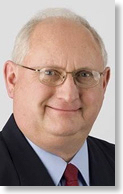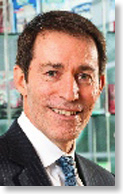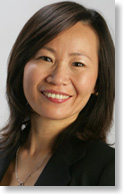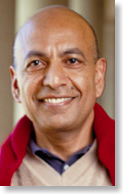Dairy Forum speakers urge market understanding, innovation
January 17, 2012 | 06:40 PM

LA QUINTA, Calif. — Opportunities lie in countries with growing populations and growing incomes that will not be able to supply all their own food, but only if suppliers learn how to do business there, those attending the Dairy Forum heard.
Bob Thompson, a professor emeritus at the University of Illinois now associated with the Johns Hopkins University and the Chicago Council on Global Affairs, told the dairy processors that parts of Asia are already using so much fertilizer and irrigation it is hard to see how farmers there can increase production to meet rising demand.
In some parts of India where farmers get free water and free electricity to pump the water, the water table is dropping, which will cause long-term problems, Thompson said.
He also said he does not believe North Africa and the Middle East can be self-sufficient because they do not have enough water or arable land.
Sub-Saharan Africa could increase agricultural productivity, but governments in that area will have to change their policies to encourage it, he added.
“More of the world’s agricultural production will move through international trade,” Thompson said.
Speakers in other Dairy Forum sessions also emphasized the importance of innovation and of understanding how different the markets in developing countries are.

Dairy has lost market share to carbonated beverages and, in recent years, to water, in the developed countries. Michael Zacka, the president and chief executive officer of Tetra Pak, Inc., said that dairy processors must fight for “the share of stomach that properly belongs to the dairy industry.”
Zacka compared fluid milk to the disposable plastic razor that used to be a key product for Gillette. Instead of relying on that product, Gillette innovated with new blades, and consumers are now paying $3 for a blade rather than 20 cents for a plastic razor.
Zacka urged the executives to change a “commoditized” product into a specialty item. Although dairy companies have become more efficient in recent years, he said, “Productivity in itself is not enough. You’ve got to get people back into dairy for the breakfast occasion. Innovation is really the key.”
Chris Kenneally, global portfolio marketing director for Tetra Pak, said China and India are inherently different markets because China’s population is aging due to its one-child policy, while India has a young population.
Rudy Dieperink, president and CEO of Friesland Campina Domo in the Americas said his company had spent a lot of time figuring how to export to the Chinese. The keys, he said, were understanding that packages of dairy products had to be smaller because refrigerators are smaller, to develop “gift packs” of dairy products because gift giving is important to China, and to realize that tastes are different.

Haiyan Wang
Anil Gupta and Haiyan Wang of the China India Institute said there is a lot of similarity in the growth of the two countries.
“China and India are renaissance stories,” Wang said. Both were important in the world economy until the early 19th century when industrialization passed them by, he said, but now they are growing again.
Gupta noted that countries wanting to do business in China and India must realize their differences. John Deere, he noted, prided itself on being big in India because it had 80 percent of the market for tractors with 100 horsepower. But most Indian tractors are smaller that that, and now Deere has changed its strategy to focus on what these countries need, rather than what it wants to sell.

Companies have made many mistakes in management and relationships with the Chinese, Gupta noted
Both countries are “vast and diverse,” he noted, with low incomes per capita. Louis Vuitton, he said, has made money in those markets by selling accessories, not expensive luggage.
They also have “weak ecosystem markets,” but Nestle will set up a $400 million farm training institute in China.
Before doing business in China and India, Gupta concluded, dairy executives need to ask themselves "How deep is the leadership’s knowledge about the new markets?”